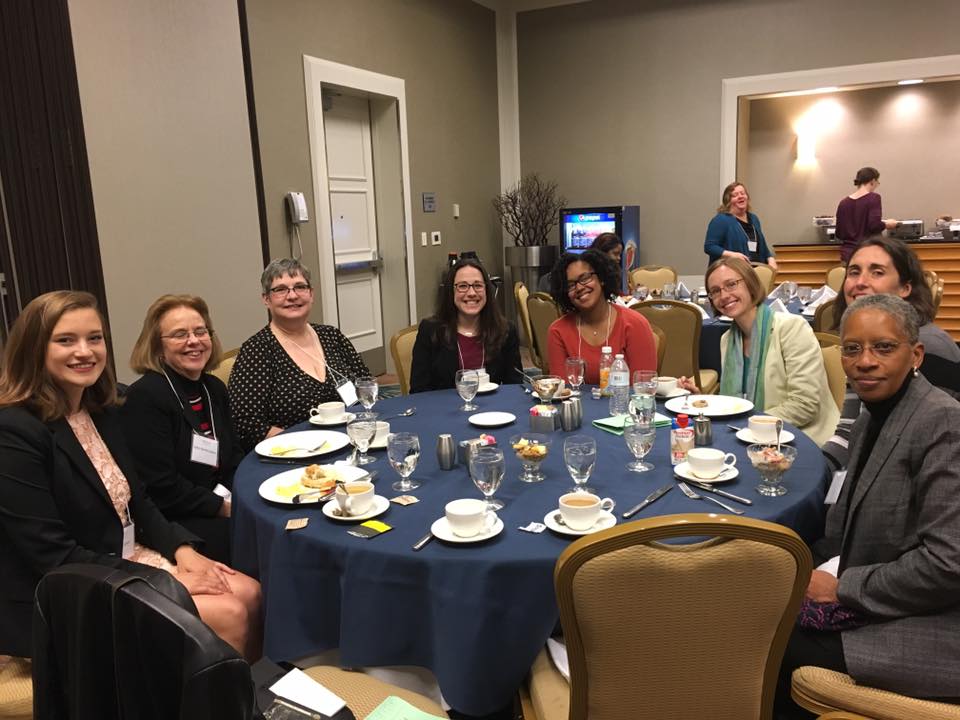I was most pleased with my experience at the Southeastern Commission for the Study of Religion (SECSOR) because it provided me with the opportunity to see what is, and what is not, happening in the academic study of religion. As someone completing a B.A. this Spring and entering an M.A. program in the Fall, I believe the connections I made at SECSOR could be foundational to the work I hope to do in the near future.
Outside of attending panels such as ‘Religion and Ecology’, ‘Ethics, Wellbeing and Sexuality’, and another looking at narratives of Utopia and Dystopia, I made a point to be present at less-formal meetings, such as meals for marginalized groups. My method for choosing specific panels, and events, was to seek out individuals exploring critical issues of authorship, identity formation and representation in their work.
The majority of the conference was based around research reflecting Christian theological endeavors. As SECSOR is co-hosted by the Society of Biblical Literature, this was not particularly surprising. While Christian theology is on the opposite end of where I would place my academic interests on of the spectrum of religious scholarship, I found its presence critical to understanding of the current state of the field.

